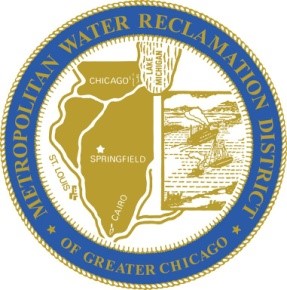“We’re a smaller organization, but the kind of law we practice is all over the place,” explains Legal Assistant Erin G. Johnson. The in-house Law Department of the Metropolitan Water Reclamation District of Greater Chicago, where Johnson works, is faced with many of the same challenges other municipal agencies face: limited resources and an increasing workload. Thankfully, the District now has another tool to help mitigate those issues.
electronic case and matter management system implementation
Several years ago, the District decided to invest in an electronic case and matter management system. Establishing one, central location for all case and matter related information, as well as creating a historical knowledge database, were two key objectives of the project. But since implementation, other benefits have also been realized:
- Automating routine processes like opening files to save both effort and time. “When you have a large number of files, having an Open File Wizard can make it a snap to create similar files without having to retype the same information,” Johnson said. “An old way of opening files consisted of opening a yellow file jacket which then resided in the handling attorney’s office.”
- Quickly responding to internal—and external—requests. “This is key when the need to quickly respond to the General Counsel, outside departments or the Board of Commissioners is necessary,” Johnson said. “Plus, the ability to narrow searches by case type has been an invaluable time saver.”
- Having up-to-date information readily available to anyone who needs access. “The Division’s head attorney can now review the current status of any file without the need to go to the attorney or to a paper file,” Johnson said. “We’ve set up the system to enable our secretary to search files, so when an attorney or division head is in a meeting, she can provide them with a status or other important information on the fly. Same is true for our general counsel who can review any file and get a status any time—even if the handling attorney is not available.”
- Operating as a team, increasing overall efficiency. “With an electronic system, it’s easier for a practice group to collaborate. Electronic routing of case documents has led to a more efficient and paperless office. We can use a Team Calendar to manage all our schedules. We use the system’s reports to manage assignments and analyze workloads more quickly. We even use the system to electronically distribute assignments, which is easier and more trackable than paper.”
- Consistently meeting deadlines. “When a contract comes in for review from an external department responding on time is crucial,” Johnson said. “Our system has automated what used to be tracked via an Excel spreadsheet. Now we’ve set up Workflow Wizards and To-Do’s to track due dates. Deadlines are more easily trackable now, and therefore met more consistently,” she said.
“The most important factor in this whole process was that we were able find a system that was easily customizable, and one that we could customize ourselves. We now use one system to meet the specific needs and unique reporting requirements of five, different divisions,” Johnson said. “A good case management system does all that; it delivers much more than just file management.”
* Written by Jean Richards, marketing manager at Legal Files Software, Inc. and originally published in the Illinois Local Government Lawyers Association Journal, May 2017, Vol. 15, No. 5 11

